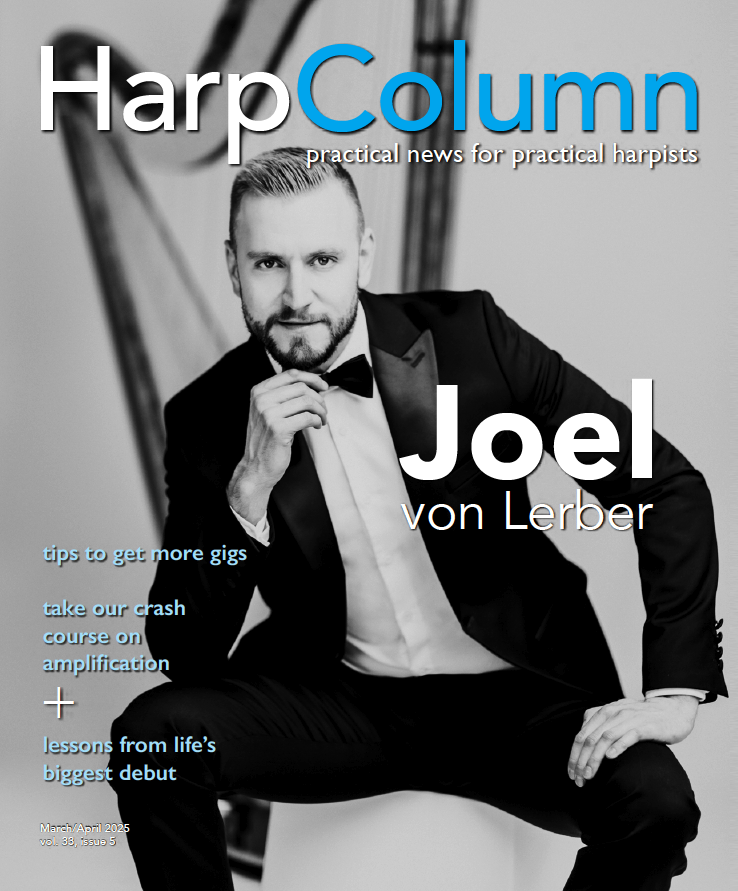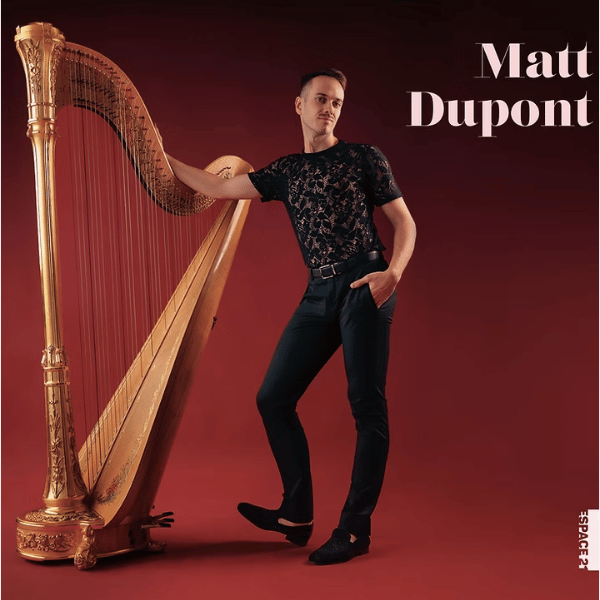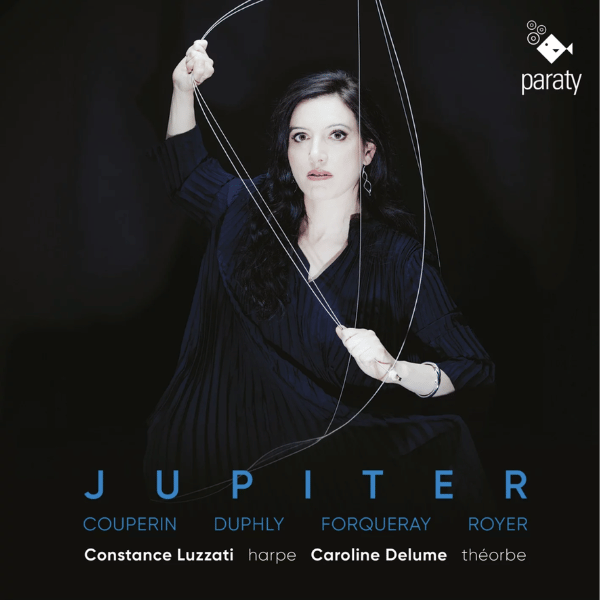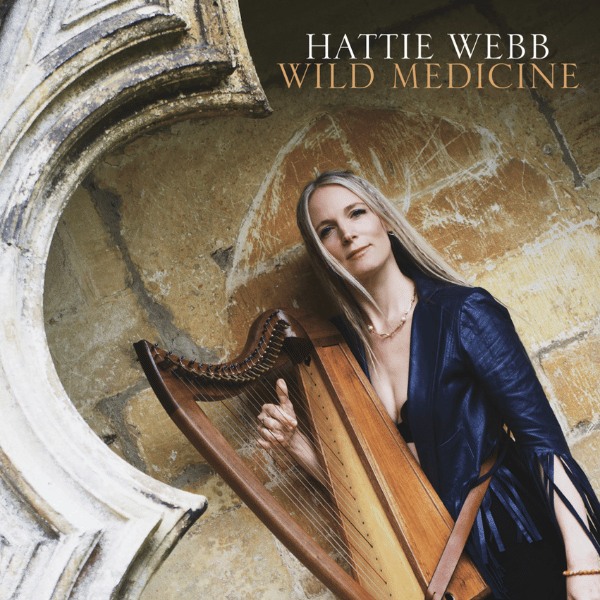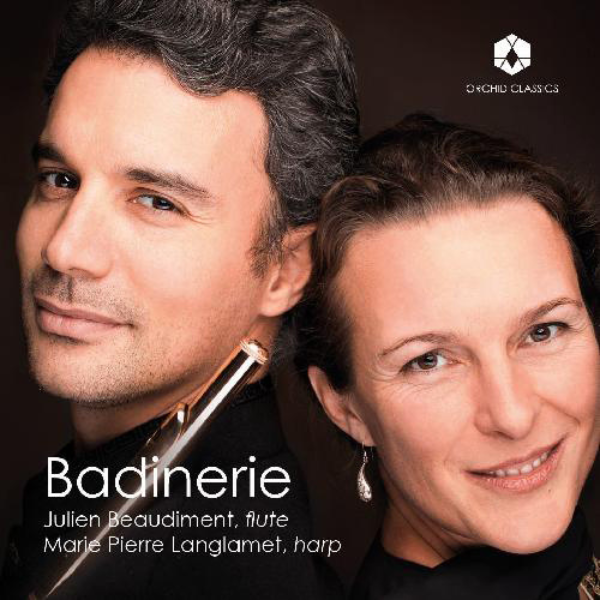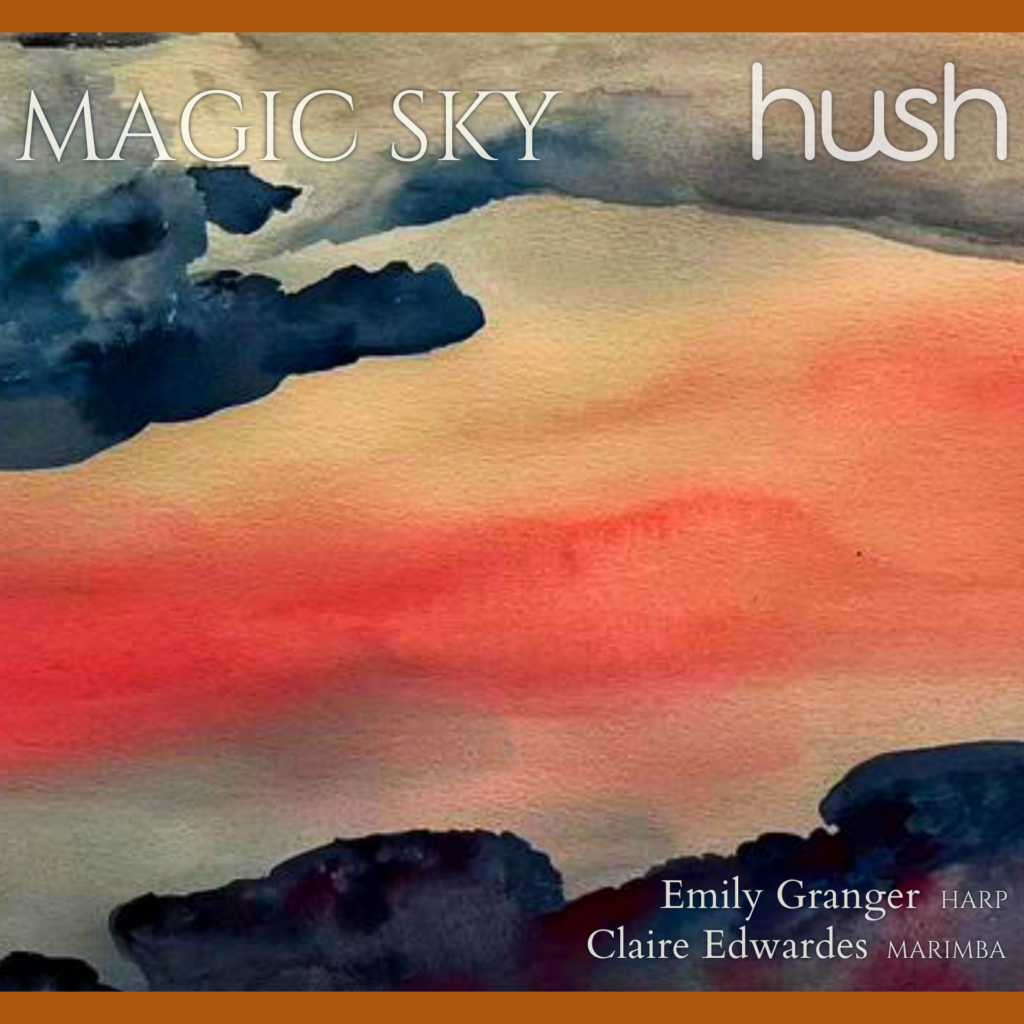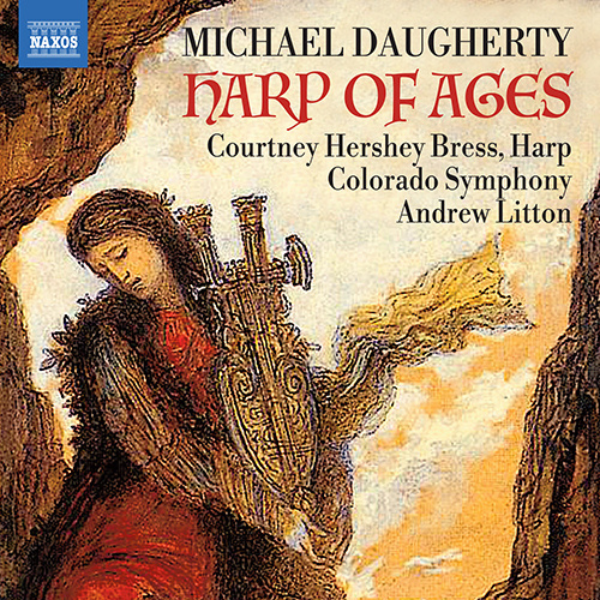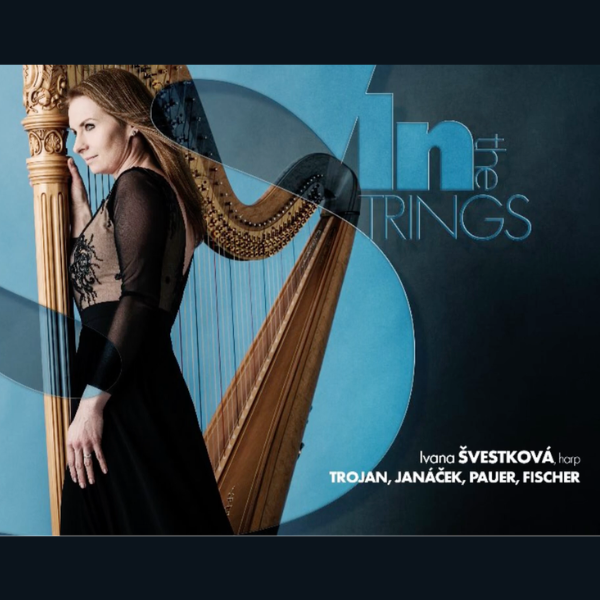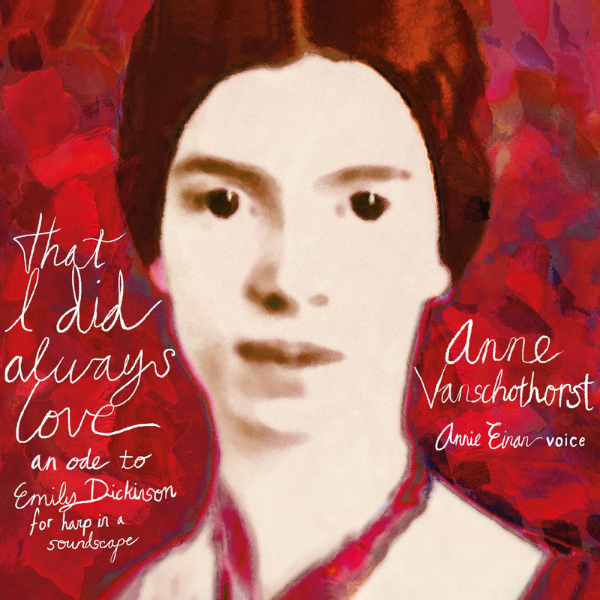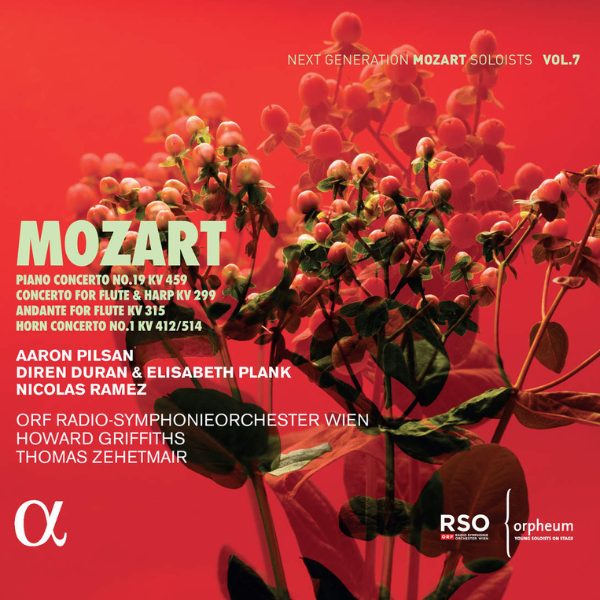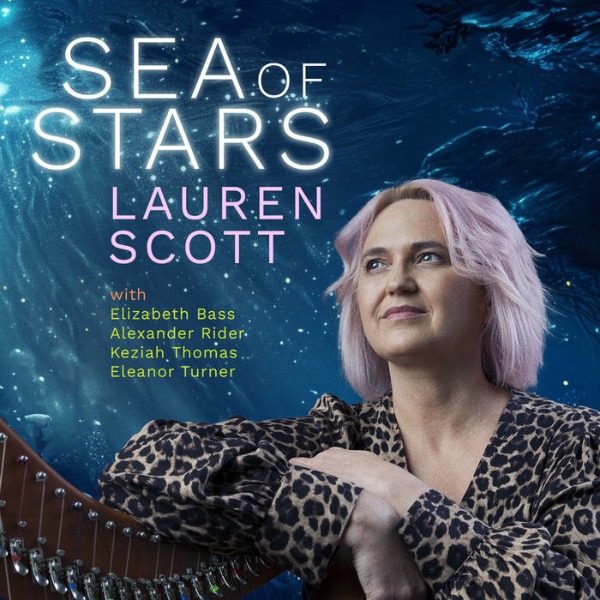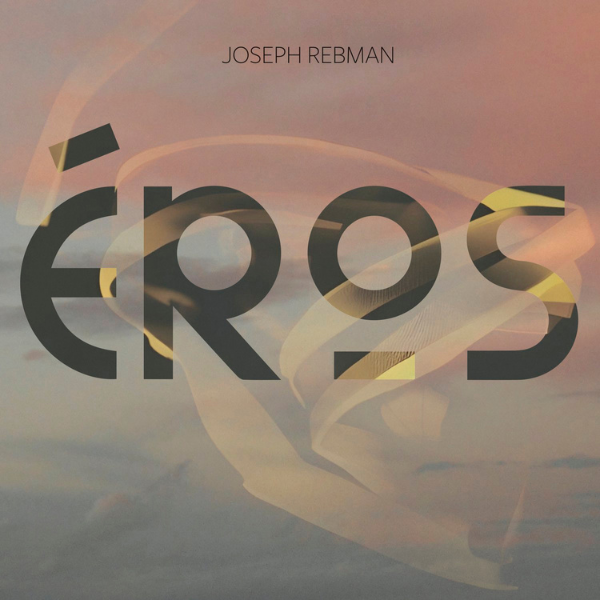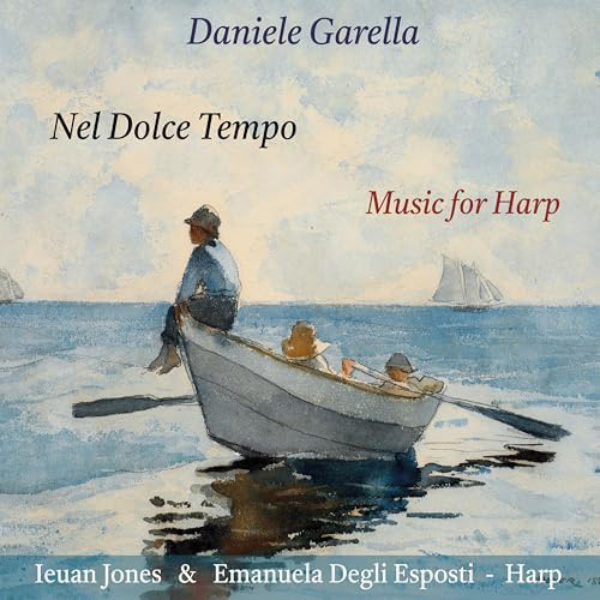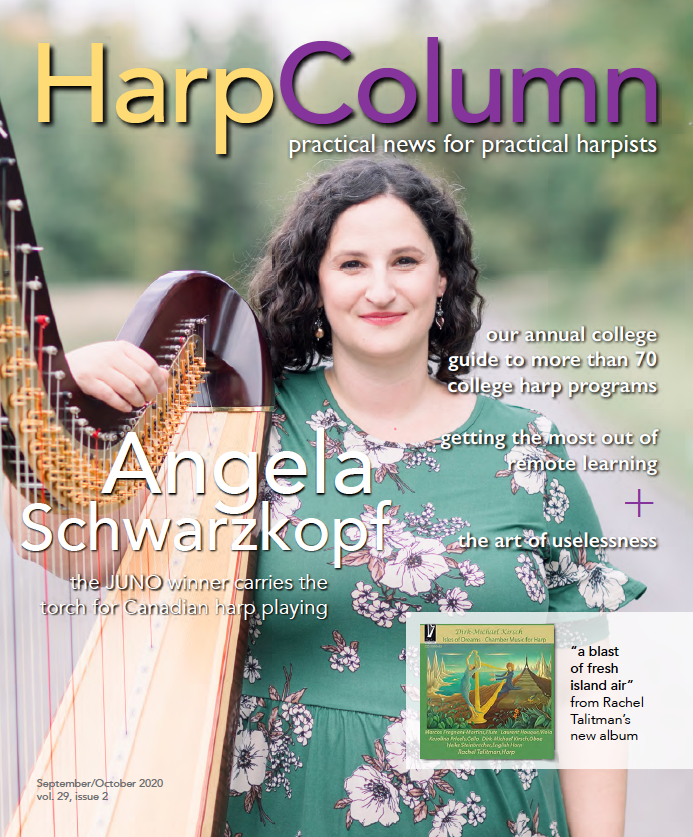
8/10
Formosa Trio: Chen-Yu Huang, harp; Pei-San Chiu, flute; and Tze-Ying Wu, viola. Self-released, 2018.
Glorious chamber music abounds in a satisfying double-CD “First Impression” of both studio and live performances by the prize winning Formosa Trio. Out of Indiana University, these three Taiwanese musicians play with elegant flair and panache. French composer Ladislas Rohozinski wrote his Suite Brêve a decade after Debussy popularized this unusual combination of instruments—and after he served on the front line in the Great War. There is an element of Ravel’s Tombeau de Couperin, a piece that celebrates loss in a joyful frolic, as well as a nod to his teacher Albert Roussel who was less personally expressive and more a detached storyteller from the sidelines. The music is fragmented as if we only catch a glimpse of the action, and yet the trio lends each vignette loving coloration and attention.
Arnold Bax’s Elegiac Trio spotlights violist Tze-Ying Wu’s sensuous sound and spellbinding phrasing. A work born out of the loss of one of Bax’s Irish republican friends after the Easter Rising, the piece is a kind of ecstatic expression of a life lived fully with purpose. The trio also gives it their all, full throttle in volume when called for, and in sweeping gestures that land gently and sweetly.
Beautifully arranged by the trio for their unique voices, Jacques Ibert’s Deux Interludes were originally intended as incidental music for a play. Pei-San Chiu’s light tone matches a velvet curtain as it rises on two contrasting scenes, one the French countryside, the other a Spanish dance scene, and the trio takes us directly into the action.
Ravel’s Sonatine as arranged for trio by Carlos Salzedo may contain more of the depth and range of coloration than possible by a piano, and one he certainly had in his mind. A technical workout for harp, Chen-Yu Huang performs with a quality of ease, rhythmic accuracy, and brightness that allows the other instruments to just float above her. In contrast, Debussy’s Sonata is presented with more of an air of mystery, the tones luminous, yet darker, more covert as if bubbling up from the earth, alive and growing into multi-blossomed flora. Trio Formosa again, invites us not just for a ride, but on an adventure, requiring all our senses.
A grouping of short arrangements by Debussy and Faure round out this repertoire. Of particular note, Pavane haunts in a more forward moving tempo than usual, yet still heartbreaking. Similarly, Sicilienne possesses a rocking feel that doesn’t allow the listener time to linger too long in their woe. I would have loved the addition of viola to create more density. To end, is a Taiwanese folksong The Grasshopper Teasing The Cock cleverly arranged with each character fully fleshed out.
An ensemble with a big future ahead, the Formosa Trio makes a superb first impression.




